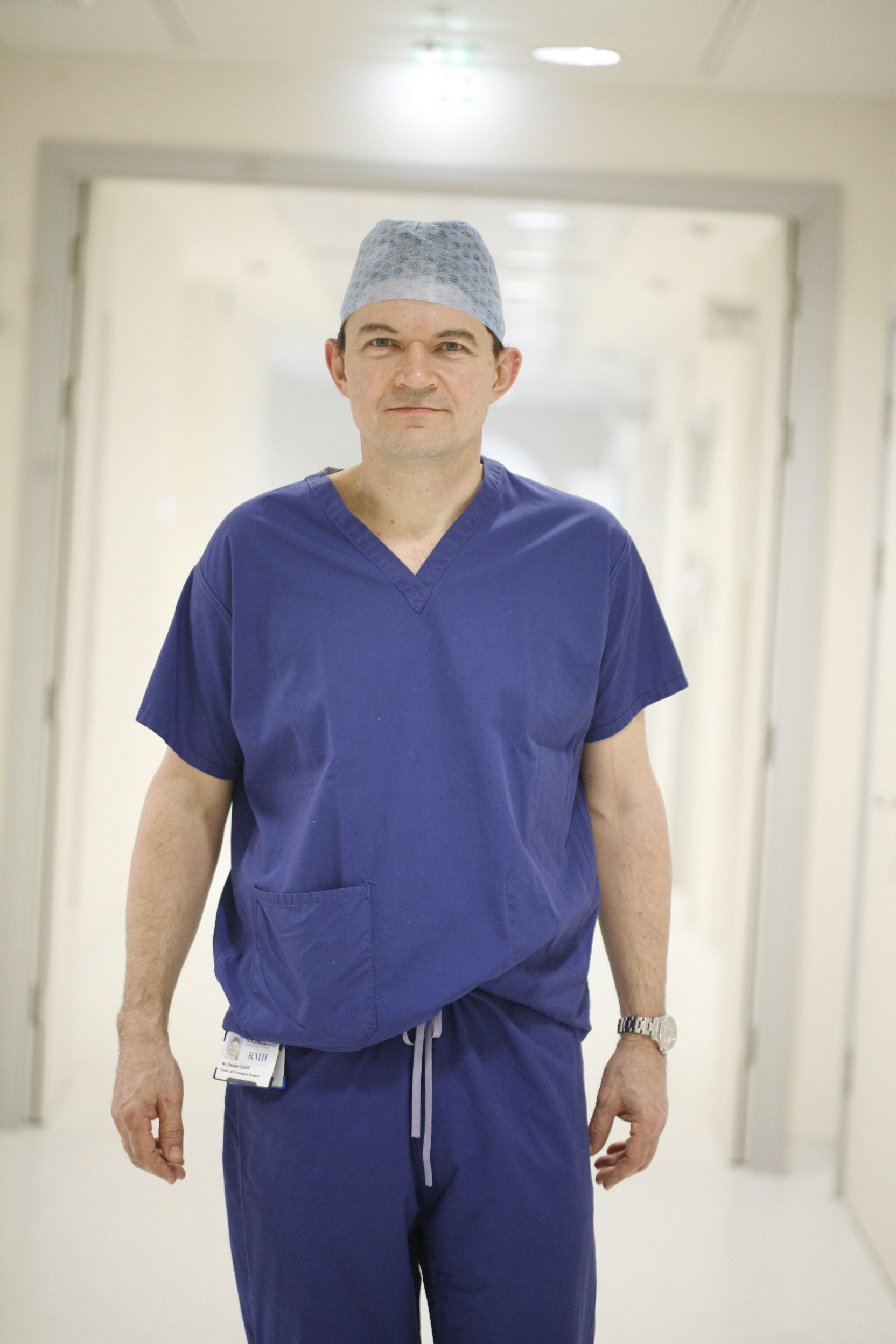Declan Cahill is a consultant urological surgeon who specialises in the diagnosis and management of patients with prostate cancer, specifically robotic radical prostatectomy and active surveillance.
Prostate cancer is a complex disease. Skill and experience are needed to determine who is best served by which treatment or management.
This website offers some information about Declan Cahill, the process of diagnosis of prostate cancer, decision-making around treatment options and robotic assisted radical prostatectomy (RARP).
This website is informed by Declan’s outcome data. This is obtained from analysis of his previous patient outcomes so relates to his own practice. This is what you can expect from treatment from Declan Cahill.
CV
Declan Cahill qualified at Charing Cross and Westminster Medical School (now Imperial) in London in 1993 with Distinction. He went on to train to be a surgeon, being awarded the Hallett Prize Gold Medal in the Royal College of Surgeons of England fellowship exams. Subsequently, he won the Keith Yates Gold medal in his urology specialist examination (FRCS Urol). He has a masters in urology.
After his training in London, he trained at the Institute Montsouris in Paris (the leading laparoscopic radical prostatectomy unit in the world at that time) to learn this pioneering skill.
He was appointed as a Consultant Urological Surgeon at Guy’s and St Thomas’ in 2003. During his time at Guy’s, Declan transitioned from laparoscopic surgery to performing RARPs. In 2015 he moved to The Royal Marsden, Europe’s largest comprehensive cancer centre. It is rated as one of the top three cancer centres in the world. It delivers exceptional care, specialising in cancer diagnosis, treatment, research and education.
He is an investigator on trials for high-risk and low-risk prostate cancer. He supervises research students (PhDs, MD, BSc and medical student research).
He is one of the highest-volume prostate surgeons in the UK.
My Approach
Putting the patient at the centre of care is my ethos. That patients entrust their treatment to me and my team is our drive and motivation.
For a surgeon measuring patient outcomes, analysing that data, making technical changes and then re-measuring outcomes is the key to improving.
Improvement in surgery comes with repetition. This is why we get better the more we do and why high-volume surgeons tend to see better outcomes than low-volume surgeons. Surgery is performed by a team. The experience of the team confers advantages which is why large centres also have good outcomes for patients.

